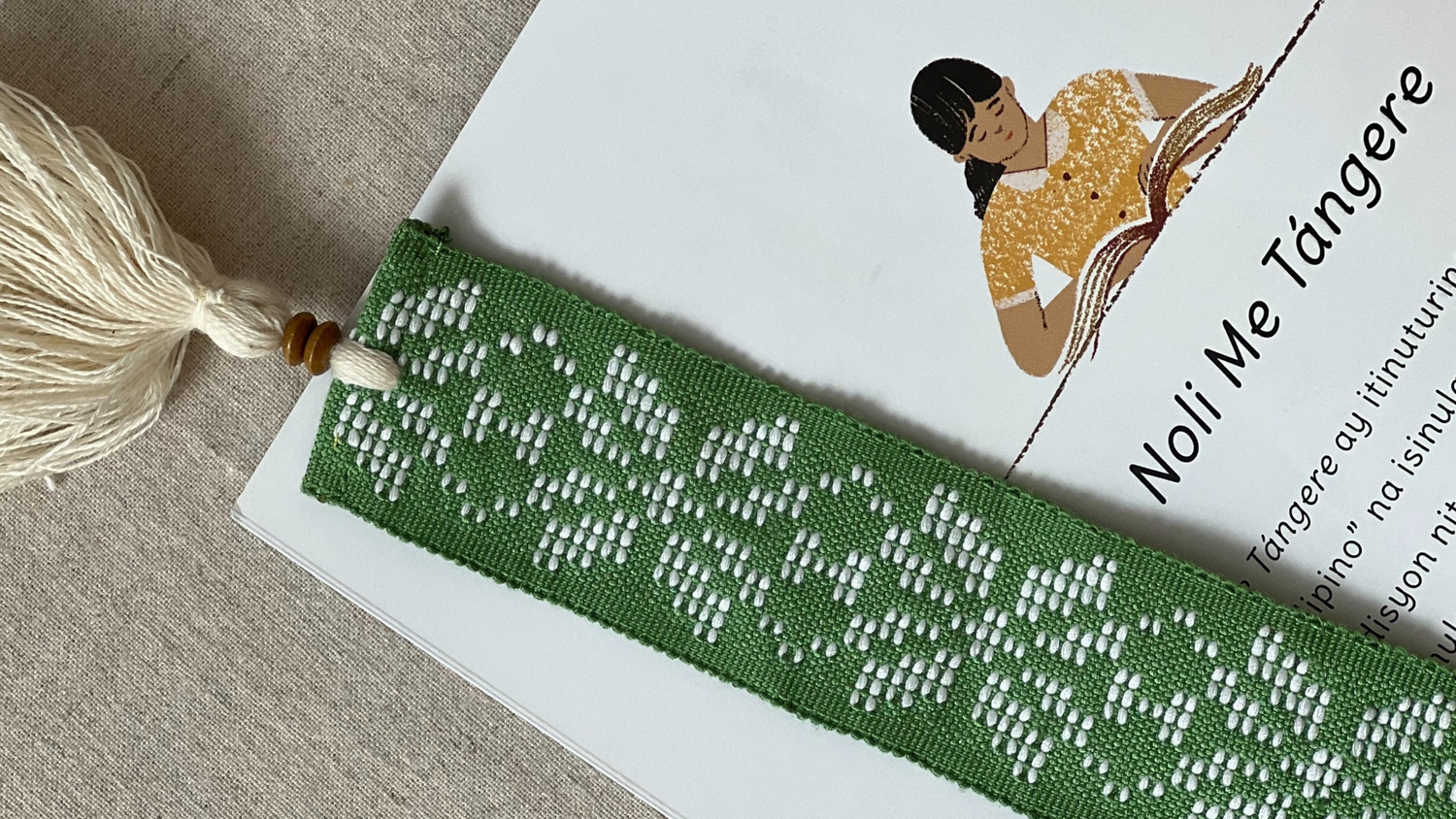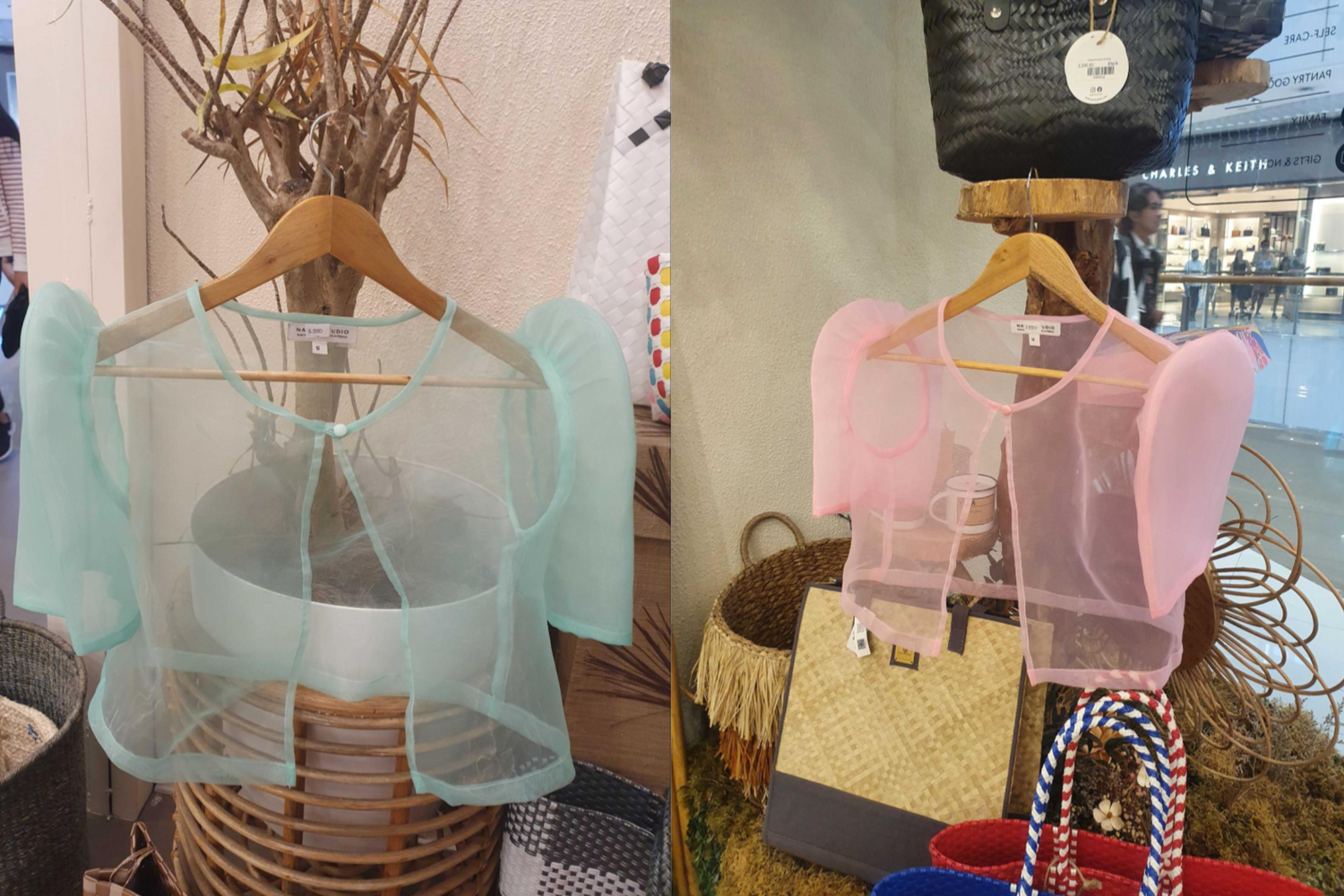The Philippines is home to many weaving traditions, with each region in the archipelago taking pride in distinctive patterns in cloth and weaving practices. For many weavers, the colors of the yarn, the meaning of symbols, and the deft movements of their fingers are cultural and family traditions taught to them through generations. Despite a world that continually promotes fast fashion, the weavers preserve these art forms that have been passed down, creating beautifully handmade pieces with care.
Preserving these traditional weaving practices is often an insurmountable challenge, which is one of the reasons HABI Philippine Textile Council was formed in 2009—to advocate the weaving heritage of the Philippines.
HABI’s work focuses on reviving the tradition and practices of old by providing local weaving communities with the finest organic cotton available. Historically the Philippines was known for its abundance of cotton, noted since the 1600s. Importation of cheaper materials and cloth into the Philippines, especially from the 1800s onwards, saw the decline of the use of homegrown, handwoven fabrics. With the proliferation of synthetic yarns since the 1970s worldwide, many of the nation’s weavers turned to synthetic polyester threads due to their lower prices and accessibility. The polyester threads, however, being non-biodegradable plastic-derived threads, do not possess the same subtle beauty, elegance, and sustainability as their earlier counterparts grown in Philippine soil.

Habi Cotton
This inferior quality of yarn has, in the past, led to a considerable decrease in the demand for locally handwoven shawls, placemats, and the like. Because of this, HABI reached out to weaving communities in the Philippines, helping them shift back to threads made from cotton, all of which are cultivated and grown in the Philippines.
“Traditional weaves are depleting and HABI is fighting to keep this tradition current and supported,” said Kelly Mortensen, one of the organization’s coordinators. “HABI vendors are mostly members believing in the preservation of our traditional textiles and indigenous culture,” she added.
HABI’s efforts also include modernizing the textiles that local weavers produce by incorporating them into contemporary garments, as well as introducing them to new distribution channels. The organization continues to remain steadfast in its mission to grow organic cotton as well as providing weavers access to the locally-grown and spun yarn.
Thanks to HABI’s efforts, weavers from all over the country from the Kiyyangan Weavers Association at Ifugao Nation to weavers of fine malong in Maguindanao have now begun to return to their roots of weaving homegrown natural fibers.

“More than presenting our unique and varied indigenous fabrics, we also aim to educate the public about how important it is to support our traditional textile industry,” said Adelaida Lim, the president of HABI. In addition to supplying local weaving communities with cotton, HABI also frequently hosts events and symposiums where attendees get to learn about the process of growing cotton, from its cultivation to its harvest and spinning.
The organization hosts the Likhang HABI Market Fair every year, where they highlight heroes of the local weaving industry and feature talks from some of the country’s renowned academics. Since 2009, this event has been a platform for Filipino weavers hailing from all corners of Luzon, Visayas, and Mindanao.
HABI prides itself on finding new and innovative ways to bring traditional Filipino weaving practices to a bigger audience. Besides their annual fair, they have also published several books on the subject, such as the recently-released Weaving Ways: Filipino Styles and Techniques by Dr. Norma Respicio and Gayle Zialcita.

Additionally, the organization has also been helping local weavers participate in the e-commerce industry, whose growth has been skyrocketing in the Philippines these past few months, due to the COVID-19 global pandemic. “One of our main goals at HABI is to make sure that our traditional textiles will still be a part of modern lifestyle as we transition to the new normal,” says HABI Chairperson Maribel Ongpin. Their digital storefront, HABI Fair, launched on October 21, 2020, and carries the organization’s published books, as well as its organic cotton thread.
HABI has helped local weavers and the Philippine weaving industry return to its roots, with an appreciation for the land and water that bring forth each cotton blossom. Every textile crafted with Philippine cotton tells an incredible story—a story of community and perseverance that spans across the archipelago, told by many who contribute to weaving this story—from growing the cotton from seed to spinning it into yarn, dyeing it with beautiful colors, to weaving it with love.
 cotton blossom
cotton blossom
Learn more about Habi Philippine Textile Council:
Habi Philippine Textile Website
Shop Habi Fair
Habi Cotton Advocacy with Mike Clarapols
Dr. Norma Respicio discusses the Weaving Ways book and the history of cotton





